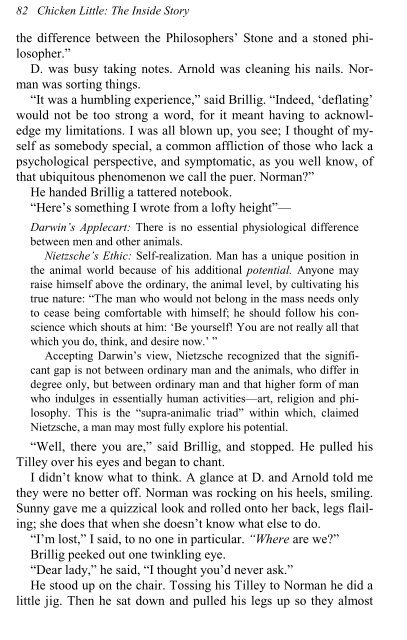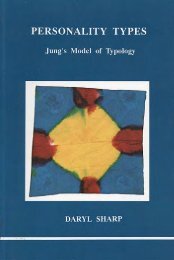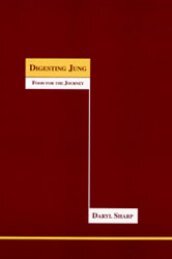Chicken Little: The Inside Story (A Jungian ... - Inner City Books
Chicken Little: The Inside Story (A Jungian ... - Inner City Books
Chicken Little: The Inside Story (A Jungian ... - Inner City Books
You also want an ePaper? Increase the reach of your titles
YUMPU automatically turns print PDFs into web optimized ePapers that Google loves.
82 <strong>Chicken</strong> <strong>Little</strong>: <strong>The</strong> <strong>Inside</strong> <strong>Story</strong><br />
the difference between the Philosophers’ Stone and a stoned philosopher.”<br />
D. was busy taking notes. Arnold was cleaning his nails. Norman<br />
was sorting things.<br />
“It was a humbling experience,” said Brillig. “Indeed, ‘deflating’<br />
would not be too strong a word, for it meant having to acknowledge<br />
my limitations. I was all blown up, you see; I thought of myself<br />
as somebody special, a common affliction of those who lack a<br />
psychological perspective, and symptomatic, as you well know, of<br />
that ubiquitous phenomenon we call the puer. Norman?”<br />
He handed Brillig a tattered notebook.<br />
“Here’s something I wrote from a lofty height”—<br />
Darwin’s Applecart: <strong>The</strong>re is no essential physiological difference<br />
between men and other animals.<br />
Nietzsche’s Ethic: Self-realization. Man has a unique position in<br />
the animal world because of his additional potential. Anyone may<br />
raise himself above the ordinary, the animal level, by cultivating his<br />
true nature: “<strong>The</strong> man who would not belong in the mass needs only<br />
to cease being comfortable with himself; he should follow his conscience<br />
which shouts at him: ‘Be yourself! You are not really all that<br />
which you do, think, and desire now.’ ”<br />
Accepting Darwin’s view, Nietzsche recognized that the significant<br />
gap is not between ordinary man and the animals, who differ in<br />
degree only, but between ordinary man and that higher form of man<br />
who indulges in essentially human activities—art, religion and philosophy.<br />
This is the “supra-animalic triad” within which, claimed<br />
Nietzsche, a man may most fully explore his potential.<br />
“Well, there you are,” said Brillig, and stopped. He pulled his<br />
Tilley over his eyes and began to chant.<br />
I didn’t know what to think. A glance at D. and Arnold told me<br />
they were no better off. Norman was rocking on his heels, smiling.<br />
Sunny gave me a quizzical look and rolled onto her back, legs flailing;<br />
she does that when she doesn’t know what else to do.<br />
“I’m lost,” I said, to no one in particular. “Where are we?”<br />
Brillig peeked out one twinkling eye.<br />
“Dear lady,” he said, “I thought you’d never ask.”<br />
He stood up on the chair. Tossing his Tilley to Norman he did a<br />
little jig. <strong>The</strong>n he sat down and pulled his legs up so they almost










